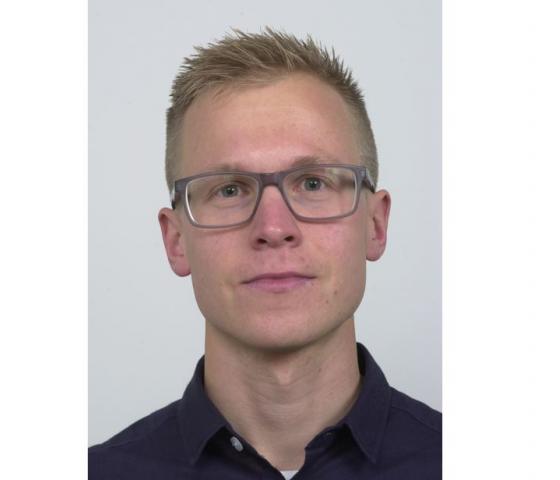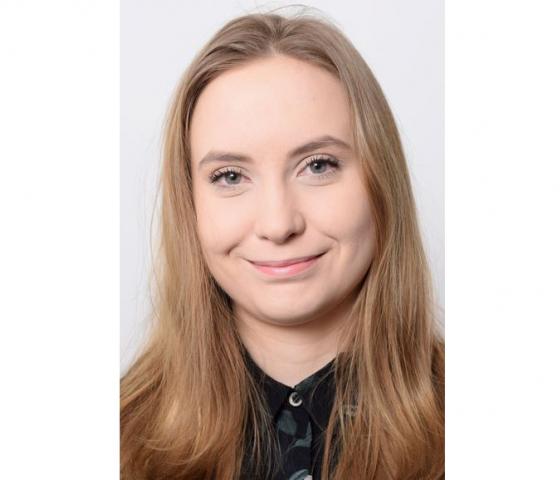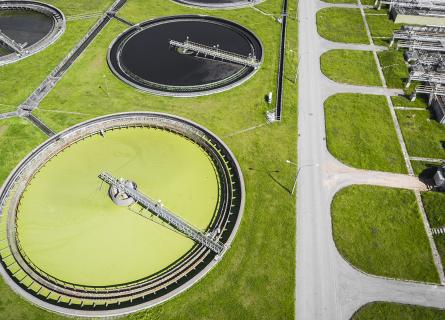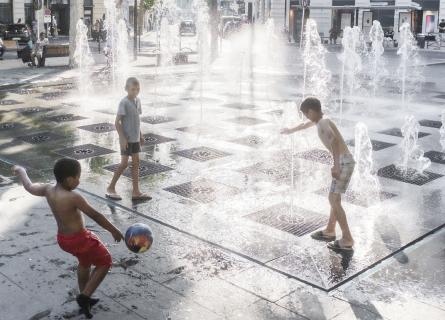
World Water Day 2020 – reducing the carbon footprint
22 March is World Water Day. To highlight the importance of water, we have interviewed some of our colleagues within the water segment about what they enjoy most about their job – and how they work to reduce the carbon footprint in the water sector.
The theme of this year’s World Water Day is water and climate change – and how the two are inextricably linked. Society needs to provide clean water for growing cities and ensure that the wastewater of cities and industries is purified effectively for the protection of our lakes, rivers and seas – and the negative climate impact should be as small as possible.
Meet three of our young experts working with water treatment at AFRY’s office in Vantaa, Finland.

What type of projects do you work on?
“In my work, the core is made up of design and consulting services for water and wastewater treatment plants. One part of my work is doing carbon footprint analyses, which we do in collaboration with our colleagues in Environmental Consulting. It is great that we can help water utilities reduce their carbon footprint without making compromises in water safety and protection of water bodies – tasks that are at the core of water utilities’ operations,” says Petri Nissinen, Project Engineer at AFRY.
One of the focus areas in Petri’s work is sewage sludge treatment.
“Recently, thermal treatment methods have gained increasing interest as potential new solutions for safe and sustainable sludge treatment. It is of great importance that when assessing new technologies, we also consider their climate impact. For this reason, we have studied the carbon footprint of these technologies in various projects,” says Petri Nissinen.
In her work as Project Engineer at AFRY, Maija Vilpanen helps water utilities protect the environment.
“I have worked a lot with hazardous substances in wastewater. When considering removal of hazardous substances, it is important to take into account the environmental impact of energy and chemicals needed for the treatment. Our work is interdisciplinary, and we cooperate a lot with our environmental departments. We also prepare industrial wastewater contracts for companies that might cause hazardous emissions to the sewer, so that the substances never even end up at the wastewater treatment plant,” says Maija Vilpanen.
Kati Blomberg, Process Engineer at AFRY, has also conducted research related to greenhouse gas emission in wastewater treatment.
“Sustainability and climate change have become increasingly important aspects within the field of water and wastewater engineering and design. In addition to consulting and designing, I’ve also conducted research related to nitrous oxide emissions from wastewater treatment. The research topic is highly important as nitrous oxide can constitute more than 50 percent of the total carbon footprint of a wastewater treatment plant. By reducing these emissions, we are able to promote more sustainable operations!”


What is the best part about your work?
Kati Blomberg says that one of the best parts of her work is getting to solve problems.
“We come up with concrete and practical solutions to meaningful problems that are important to society”.
Maija Vilpanen’s favourite part of her work is the variety.
“I love that I get to work on so many different projects. Even if they are all related to water, there are so many different kinds of projects. Of course, it also feels very meaningful to work in an area that is so critical to society.”
Petri Nissinen says that it is important for him that his work is doing good for both the environment and society.
“I also enjoy that my job is a great combination of theory and practice. The learning curve hasn’t flattened - there is no way I would get bored in my job.”
What would you like people to know about your work?
“A lot of work in the water sector goes unnoticed by the general public. Clean drinking water and efficient wastewater treatment is often taken for granted”, says Maija Vilpanen.
“I agree with Maija,” says Kati Blomberg. “Many people only notice water services when something goes wrong. Currently, the COVID-19 situation has shown the critical role water utilities have in the society.”
“I would like people to know how well wastewater is actually taken care of”, says Petri Nissinen. “Still, people should understand that anything that goes down the sewer does not just disappear, and water utilities have to take care of it. Awareness has risen, but there is still room for improvement.”
“And we all think that maybe not that many people know how much fun it is to work within the water sector!”


